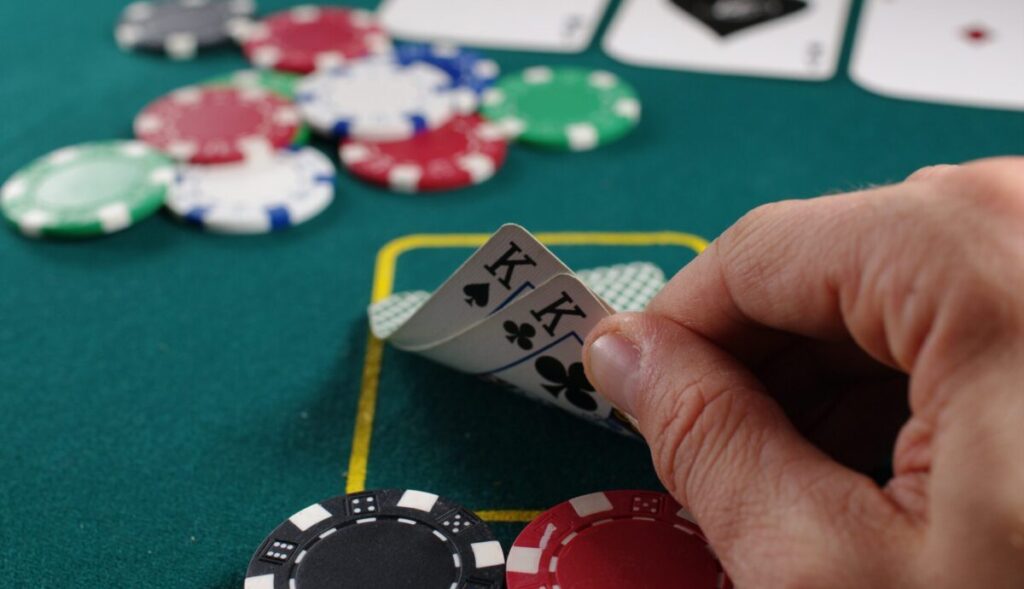
A Gambler’s Profile
Problem gamblers from almost any culture or socio-economic level may have had an alcoholic parent and may have begun gambling as a teenager. When not gambling, they may be easily bored, restless or be seeking distractions from others. Such people may have medical problems related to stress. As gambling increases, they lie about their activities, deny there is a problem and use more money to achieve the desired excitement. When they become depressed or anxious, they use gambling to feel better and if they try to quit gambling altogether, they become restless and irritable.
Gambling disorders can wreak havoc on a family as credit ratings are destroyed and jobs are lost. Some gamblers become so desperate they seek money through fraud and other illegal means or Jose family relationships by creating excessive debt. As with any
addiction, those close to the addicted are initially confused and then begin to sense something is going wrong. Their partner’s behavior Is becoming more erratic and the
lies are mounting.
There is help for compulsive gamblers and their loved ones in Gamblers Anonymous, Gam-Anon and other 12-step programs designed to help the addict. These groups help
family members to stop “enabling/’ establish boundaries and attend to their own psychological issues. Since most problem/compulsive gamblers are trying to escape their dysphoric feelings of depression, anxiety, helplessness or guilt by seeking excitement and/or escape, many seem to need both a GA-type group and counseling.
Through the GA groups and psychotherapy, they can begin to identify self-destructive
patterns and feelings and begin to set meaningful goals. Financial counseling may be helpful as well. Anti-depressant and anxiolytic medications can be helpful but caution
should be used when the client has a substance abuse or addiction history.
Psycho-education, a 12-step program, counseling, appropriate family support and setting of limits, as well as the will to succeed are key to the compulsive gambler’s healing process. There are many inspiring stories of gamblers who become successful in their lives and their work. In turn, many of those individuals have helped others become free of gambling as well.
Are You Living With A Compulsive Gambler?
(Gam-Anon 20 Questions)
If there is a gambling problem in your home, the Gam-Anon family group may be able to help you cope with it. If you are living with a compulsive gambler, you will answer ”YES” to at least six of the following questions.
- Do you find yourself constantly bothered by bill collectors?
- Is the person in question often away from home for long, unexplained periods of time?
- Does this person ever lose time from work due to gambling?
- Do you feel that this person cannot be trusted with money?
- Does the person in question faithfully promise that he or she will stop gambling; beg, plead
for another chance, yet gamble again and again? - Does this person ever gamble longer than he or she intended to, until the last dollar is
gone? - Does this person immediately return to gambling to try to recover losses, or to win more?
- Does this person ever gamble to get money to solve financial difficulties or have unrealistic
expectations that gambling will bring the family material comfort and wealth? - Does this person borrow money to gamble with or to pay gambling debts?
- Has this person’s reputation ever suffered due to gambling, even to the extent of
committing illegal acts to finance gambling? - Have you come to the point of hiding money needed for living expenses, knowing that you
and the rest of the family may go without food and clothing if you do not? - Do you search this person’s clothing or go through his or her wallet when the opportunity presents itself, or otherwise check on his/her activities?
- Does the person in question hide his or her money?
Have you noticed a personality change in the gambler as his or her gambling progresses?
- Does the person in question consistently lie to cover up or deny his or her gambling
activities? - Does this person use guilt induction as a method of shifting responsibilities for his or her gambling upon you?
- Do you attempt to anticipate this person’s moods, or try to control his or her life?
- Does this person ever suffer from remorse or depression due to gambling, sometimes to the point of self-destruction?
- Has the gambling ever brought you to the point of threatening to break up the family unit?
- Do you feel that your life together is a nightmare?
Ten Questions About Gambling Behavior
(A Self-Assessment Tool)
Are you, or is someone you know:
- Preoccupied with thoughts of gambling (reminiscing about past gambling
experiences, planning the next outing or thinking about ways to get
gambling money)? - Increasing bets to maintain excitement?
- Becoming irritable when trying to cut back on gambling?
- Using gambling as an escape from feelings of anxiety or depression?
- Gambling to chase or make-up for previous losses?
- Borrowing money from others, or selling or pawning items to pay debts or
to keep the action going? - Lying to conceal gambling related activities?
- 8. Resorting to illegal acts such as forgery or fraud to finance gambling?
- Risking or losing personal, family and professional relationships?
10. Repeatedly failing to stop or cut back on gambling?
If you or someone you know answers “Yes” to any of these questions,
you should seek the help of a licensed professional.


